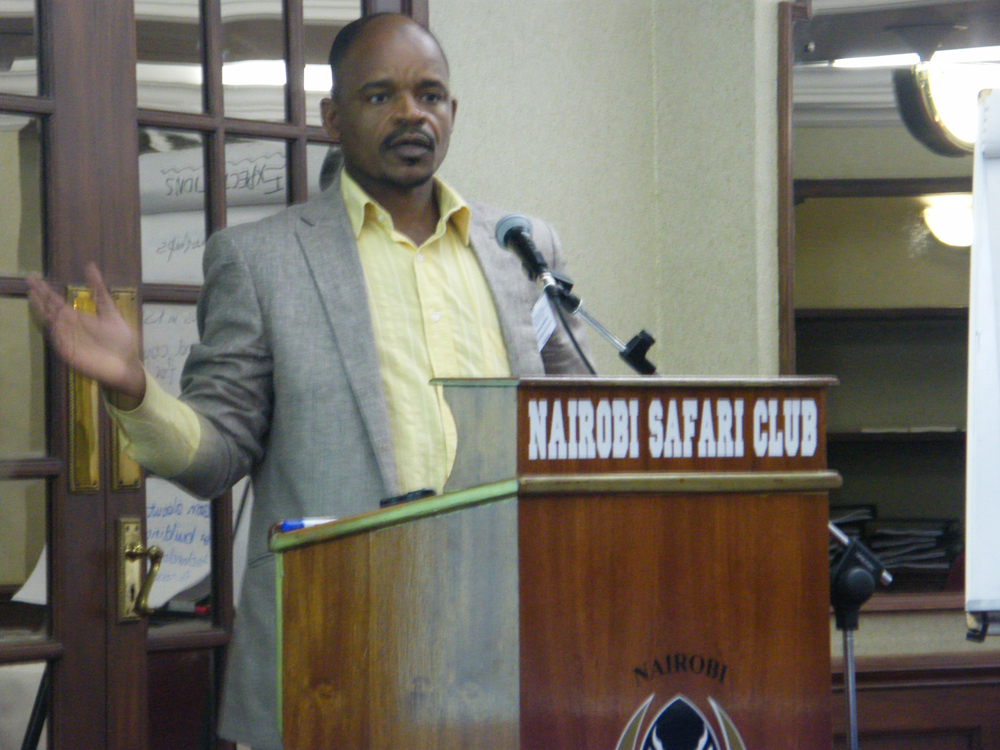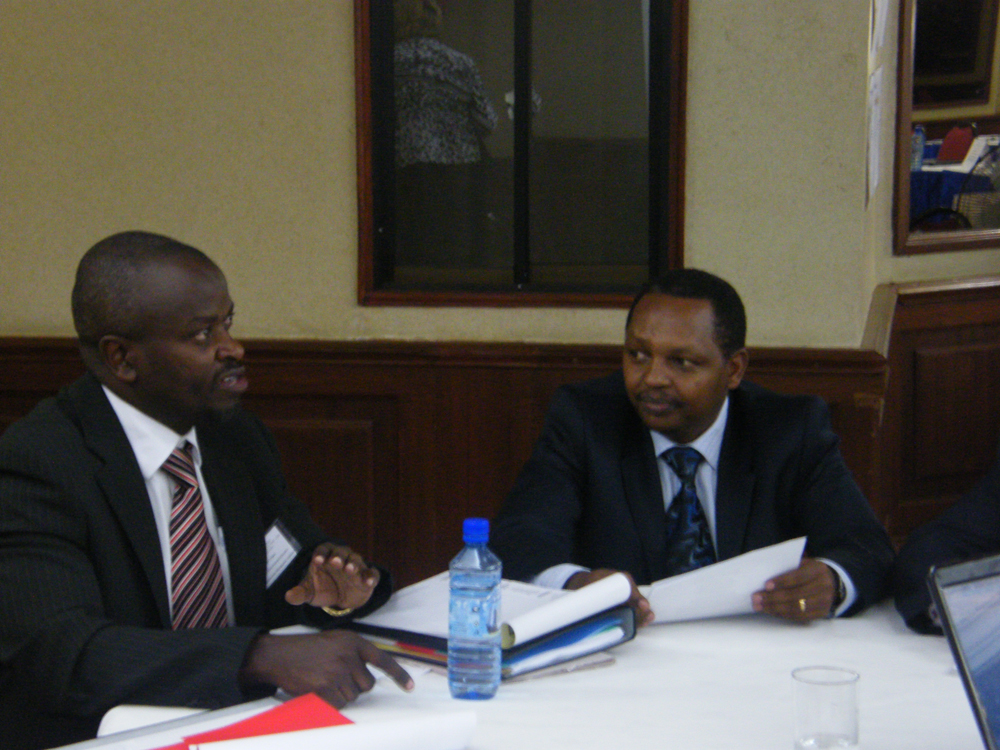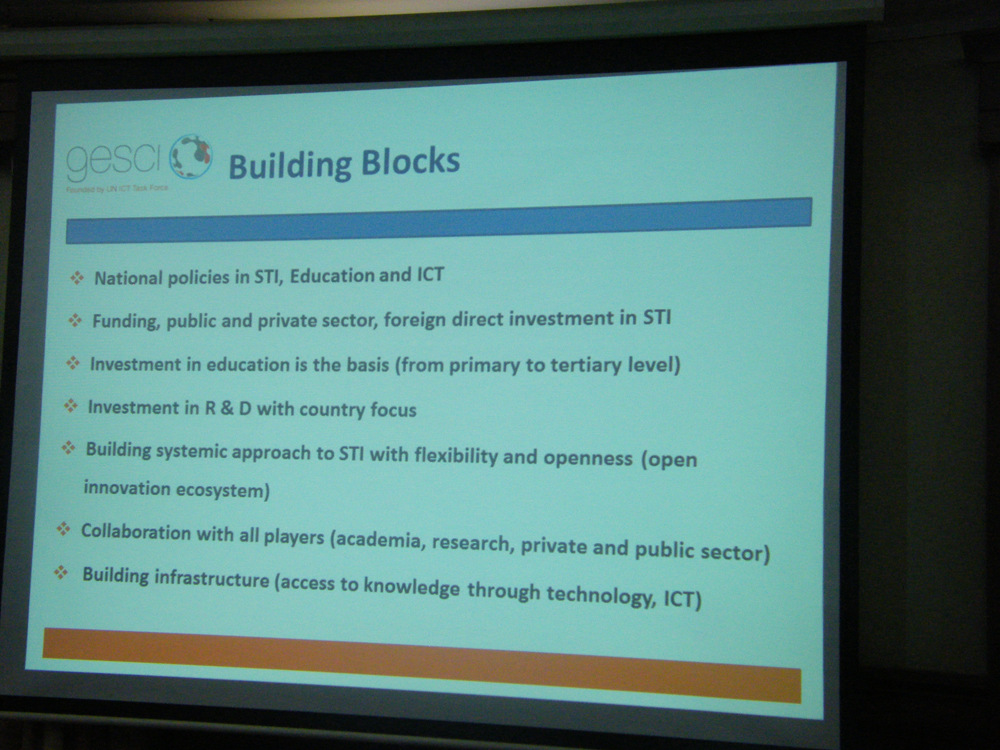The objective of the workshop is to identify a broad range of stakeholder views and opinions that will inform the development of the African Leadership for ICT conceptual framework and strategy. As part of this identification process, participants have been discussing opportunities for development of Inclusive“Knowledge Societies”.
The ALICT programme is a tripartite partnership between the African Union, the Ministry for Foreign Affairs of Finland and GeSCI. The programme will facilitate the training and development of 150 potential African leaders.

Mr Ephraim Balebetse
Director Ministry of Transport and Communications Botswana.
The opening presentation asked a series of ‘how to’ questions:
How can we move to a Knowledge Society?
How can we restructure and reform existing systems?
How will we define a vision for the development of the knowledge society?
What role do we envisage stakeholders playing?
Other presentations went on to explore the following perspectives:
• ALICT Project for Leadership on ICT
• Building Blocks for Knowledge based Societies
• ICT, Education, Development
• Science & Technology
• Innovation
• Other Emerging issues
Africa Leadership in ICT Consultation Workshop Day 1
The objective of the workshop is to identify a broad range of stakeholder views and opinions that will inform the development of the African Leadership for ICT conceptual framework and strategy. As part of this identification process, participants have been discussing opportunities for development of Inclusive“Knowledge Societies”.
The ALICT programme is a tripartite partnership between the African Union, the Ministry for Foreign Affairs of Finland and GeSCI. The programme will facilitate the training and development of 150 potential African leaders.
The opening presentation asked a series of ‘how to’ questions:
- How can we move to a Knowledge Society?
- How can we restructure and reform existing systems?
- How will we define a vision for the development of the knowledge society?
- What role do we envisage stakeholders playing?
Other presentations went on to explore the following perspectives:
- ALICT Project for Leadership on ICT
- Building Blocks for Knowledge based Societies
- ICT, Education, Development
- Science & Technology
- Innovation
- Other Emerging issues
Participants also split into working groups to discuss the current status of the knowledge society in the context of Science, Technology and Innovation systems in their respective countries and fields; challenges; and leadership ‘how to’. In terms of visions and policies the groups looked at government investment, community awareness and the contribution of the private sector. They discussed challenges focusing on ill designed policies and consequent disconnects between industry and academia, the economic aspirations of countries and S&T, and scientists and policy makers.
A lack of implementation know-how was also highlighted as a major obstacle to the development of the knowledge society in African countries in terms of political will, finance, coherence, incentive/recognition and an understanding of the importance of R&D by government and even more by industry. Working groups identified awareness raising as a key priority for leadership building because a leadership that believes in the opportunities of STI is non-negotiable.
In terms of ‘how to’ participants stressed the importance of evidenced based decision making, providing constant updates and policy briefs to leaders, the role of advocacy, and targeting both formal and informal structures. Open innovation was also honed in on in the form of Living Lab- community approaches – research & development; Co-participation/ co-design; Triple-Helix dialogue – 3 suns - research, industry and government, and commitment, commitment, commitment.
The full consultation workshop report will be available on the GeSCI website in two weeks.
By Niamh Brannigan




